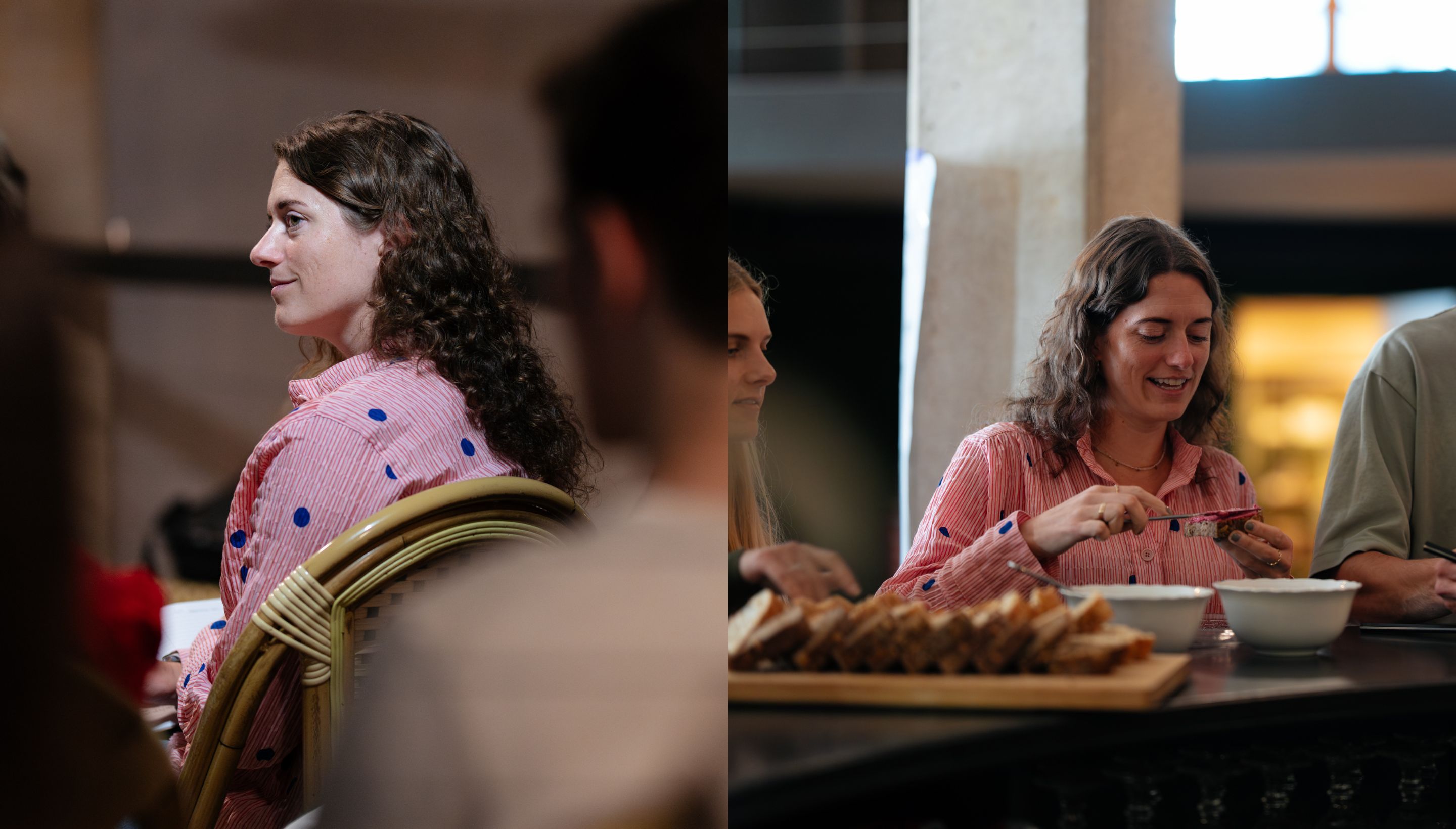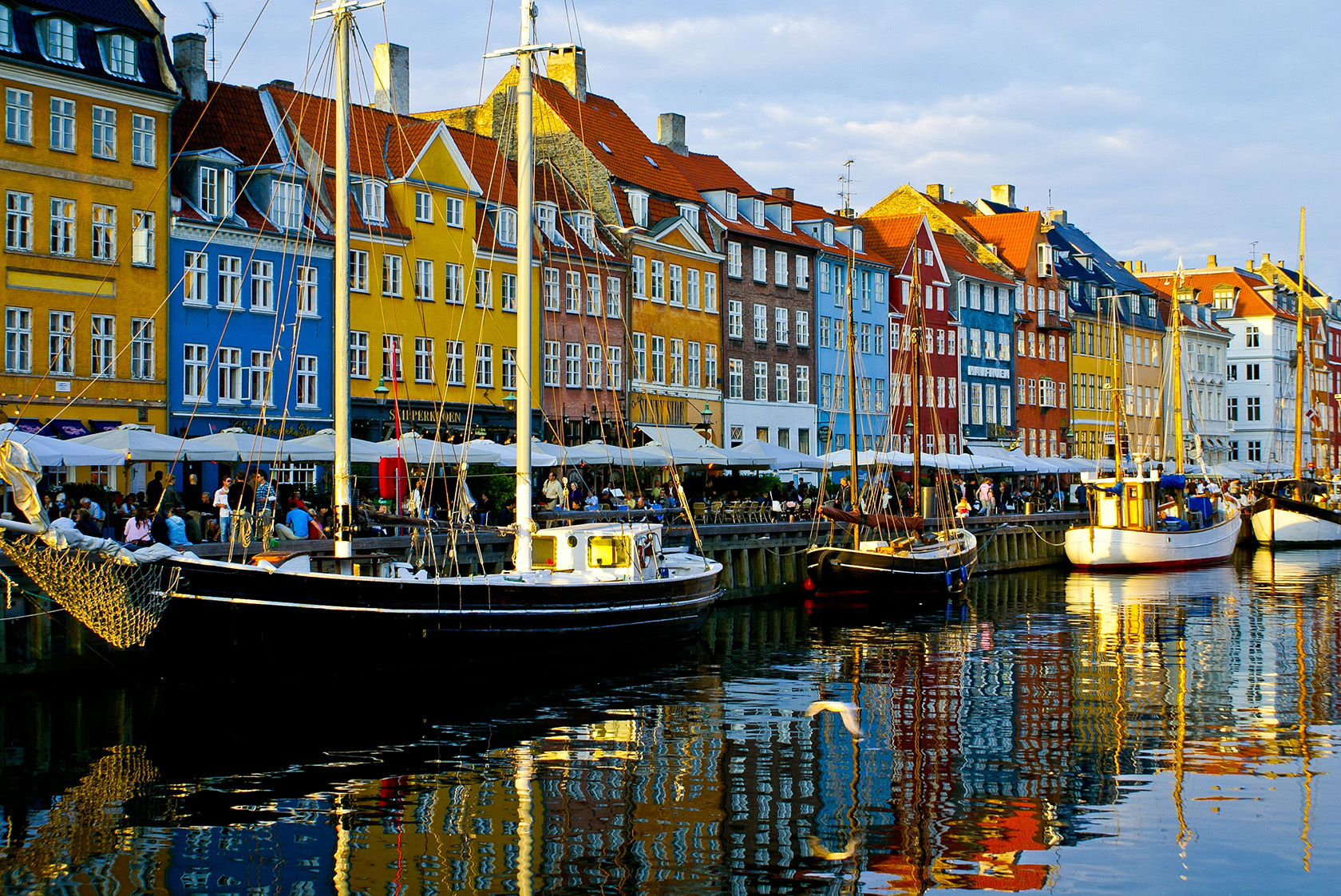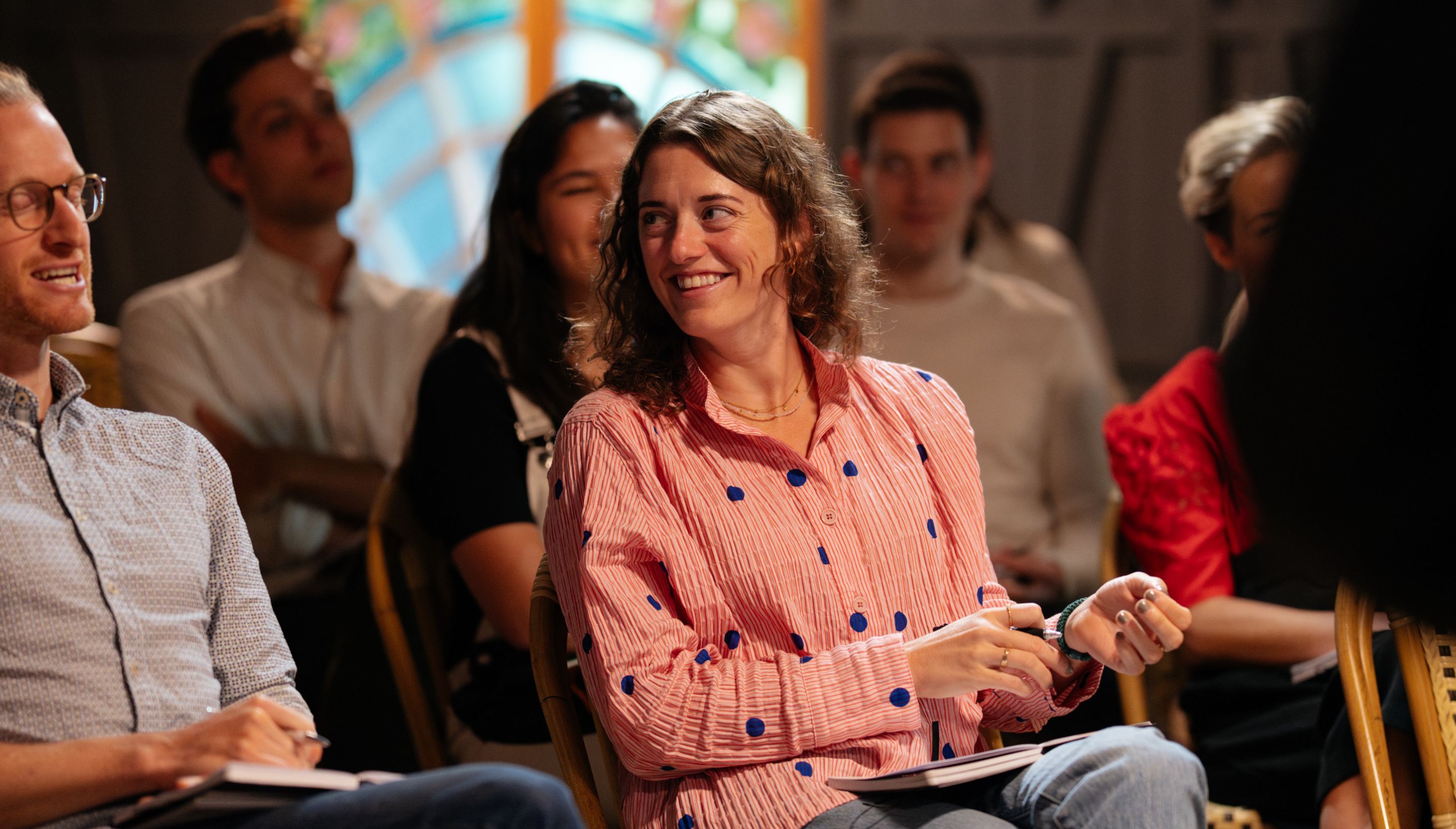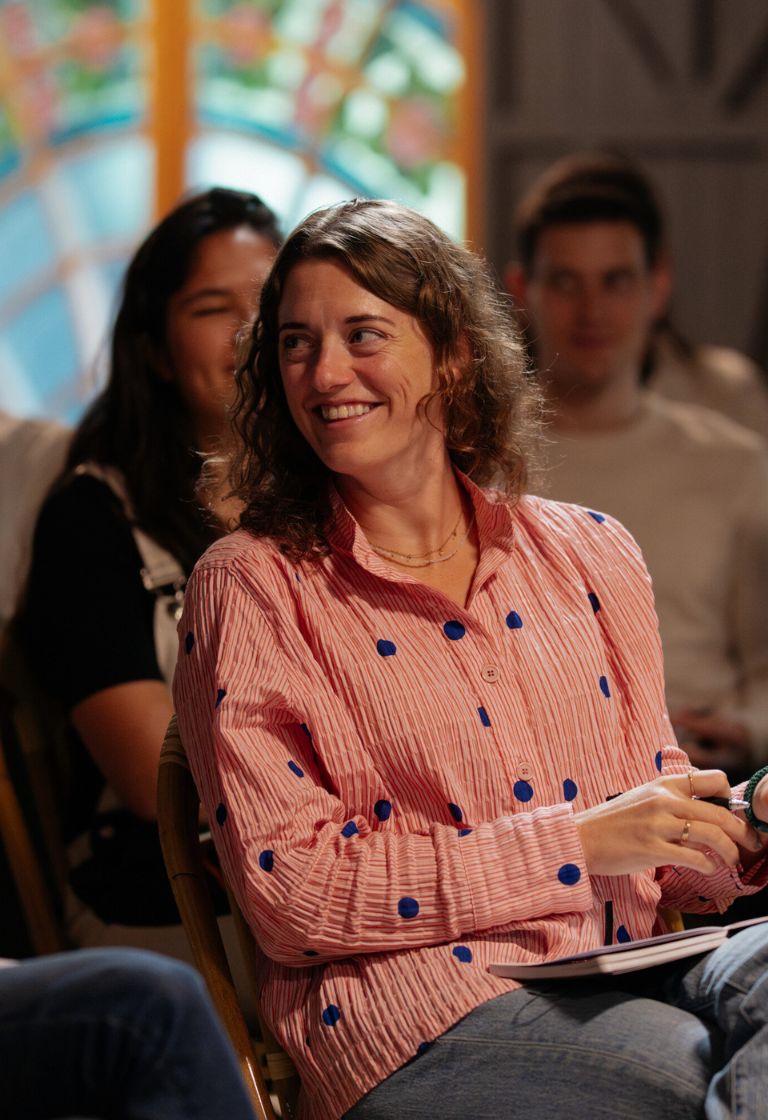What Denmark Taught Kiri Campbell About the Future of Food
Photos by Isabell Janssen
Growing up on Pop-Tarts in Arizona, Kiri Campbell never thought much about where her food came from. But after moving to Denmark, her perspective shifted — ultimately leading her to apply for The School’s Food Transition Fellowship. Now, Kiri is dedicating her career to transforming the systems that feed us.
Food hasn’t always been a topic close to Kiri Campbell’s heart. Growing up in Arizona, U.S.A., she was raised primarily on American-style packaged foods.
“I felt very disconnected from the things that I was consuming for most of my youth and young adult life,” said Kiri. “I think it's been a lifelong journey for me to get a bit closer to that.”
That journey began to take shape when Kiri moved to Copenhagen, Denmark, and discovered a very different approach to food: one grounded in innovation, cooperation, and a strong agricultural identity.
From there, her curiosity grew into conviction. This year, Kiri was selected for the Food Transition Fellowship at The School for Moral Ambition, where she is now exploring how food systems can strengthen the EU’s strategic security in the face of the growing climate crisis.
Accident of the algorithm
Since being accepted for the fellowship, Kiri has been joking with her friends that the whole thing has been an act of the universe.
For months, she’d been telling her friends that her professional energy could be better spent elsewhere. Then, by accident of the YouTube algorithm, she watched a clip of comedian Jon Stewart talking to The School’s co-founder Rutger Bregman, where he mentioned applications for a ‘fellowship’ were open. Upon finding the application form, the opening sentence asked if the person reading was looking for a role with purpose.
“I had seen this clip, I think, three days before the applications closed,” she said.
With another potential option for her future, she started to ask herself difficult questions she had been avoiding about the professional path she was on.
“The company that I was at is great and I really believe in their product and people,” she said. “But the role that I was doing was not making the best use of my time and energy.”
A nexus for food knowledge
Kiri’s interest in the food transition stems from a number of places, but is inextricably linked to her environment — and in particular, her move to Copenhagen eight years ago.
She originally moved there to pursue a master’s in environmental and natural resource economics. Although the course involved some agricultural policy, after graduating she instead worked as a research assistant at the Technical University of Denmark on the impacts of flooding. Following a transition to the energy sector, she started feeling that there wasn’t much space for her to contribute much new there — the space was already saturated with resources, people, and talent.
"That Pop Tart that I was eating — someone needed to grow wheat for it."
But the other effect of moving to Denmark was that over time Kiri became more exposed to ideas around agriculture. She describes Copenhagen as a nexus where agriculture, biotech, and food tech meet — and points out that Denmark has a strong agricultural sector and is overwhelmingly a net exporter of goods, exposing her to the realities of our food systems in new ways.
“Denmark has historically had a huge farmers cooperative movement — that's something that's very, very important to Danish identity and to the culture,” she said. “It just kind of started opening my eyes more to the fact that, you know, that Pop Tart that I was eating — someone needed to grow wheat for it and send that wheat to a processing plant.”

The Danish approach
Denmark is also one of the countries in the EU at the forefront of pushing for the proliferation of plant-based foods, as the country adopted the Danish Action Plan for Plant-based Foods in 2023. Alongside its national plan, Denmark has also committed to pushing for an action plan on the EU level.
Kiri believes a lot of inspiration can be drawn from the Danish action plan, especially in how they approached their messaging.
“They were quite good about picking which narrative would appeal to which segment while staying fact based,” she said.
For example, when speaking to farmers, Kiri said it might be more important to speak about economics rather than environmental issues. She clarified that it’s not about embellishing anything, but rather talking to a person about issues that matter to them and presenting facts in a way that resonates with their individual needs or worldview.
Finding autonomy
Kiri has now joined the European Environmental Bureau to look into how diversifying our sources of protein could support strategic autonomy in the EU as the climate crisis worsens. Strategic autonomy is the geopolitical notion that we are able to make our own decisions without depending on resources like Russian natural gas or Brazilian soy imports.
Food inflation continues to be higher than general inflation in the EU, with beef prices remaining at a historical high. Geopolitical instabilities and climate challenges are the main issues affecting food prices in the EU. With one in ten people in the EU already unable to afford a proper meal every second day, increased costs will make nutrition even less accessible for many.
By diversifying our sources of protein to focus more on plant-based proteins, Kiri believes we can rely on our own resources in the EU to produce our food, which will mean our ability to feed ourselves in a cost effective way isn’t dependent on geopolitical stability and is less impacted as the climate crises progresses.
“Traditionally, our protein sources have been very animal focused,” she said. “If you were to ask someone what protein is, the top answers that they would give you would be almost entirely animal sourced.”

Plenty of reasons for plants
Although protein has a strong association with animal sources, scientists have long said that it’s important to eat more plant-based foods for both human and planetary health. The EAT-Lancet Planetary Guidelines, published in 2019, emphasize “a plant-forward diet where whole grains, fruits, vegetables, nuts and legumes comprise a greater proportion of foods consumed.”
Additionally, the report by the EAT-Lancet Commission highlighted that a move to “mostly plant-based dietary patterns” is necessary to address biodiversity loss, nitrogen pollution, and excessive freshwater consumption, among a host of other environmental issues.
And although it’s not the most salient issue in society, Kiri adds that an important part of diversifying into other sources of protein is animal welfare — that is, moving to plant-based foods means less animals are raised and killed on factory farms for meat or other animal products.
"The EU has a lot of different climates, varied produce… we’re not taking care of them."
“The EU's strength historically has been the amount of variety that we have… we have a lot of different climates, we have varied produce,” said Kiri. “All of these advantages that have given us a great position in the world — we’re not taking care of them.”
Lastly, aside from the security, climate, and health benefits of moving towards more plant-based diets, exploring new proteins opens the door for new culinary experiences like using microbes to grow novel protein products grown through a process called precision fermentation.
“I think there's some really underrated protein sources, like fava beans, where the spotlight hasn't quite come on them yet,” she said.
Just the right place
When thinking about a vision for the future of food, she imagines a time in which consumers are equipped with information about the nutritional value, environmental consequences, and ethical consequences of what they’re eating. Ideally, she said, it would be up to governments to provide those things directly so the onus for deciding doesn’t continue to fall onto consumers.
After spending years dipping her toe into the different waters of the world of sustainability, Kiri seems to have found a place where the water temperature feels just right. “Finally, the food transition feels like it rings true that this is something that, to my core, I care about, I believe in,” she said.
Ultimately, moving towards plant-based proteins and giving the EU more strategic autonomy will be a collaborative effort, Kiri said. While it’s important to move in that direction, it has to be done in a collaborative way where there is a just transition for all of those in the supply chain.
“There needs to be very willful collaboration on finding solutions that work for everyone,” she said. “We need everybody on the same team working towards a better future.”
Jack McGovan is a freelance writer and environmental journalist whose work has appeared in international outlets like The Guardian, WIRED, and The Atlantic. His newsletter, Sower, looks at big swing solutions to make the world a better place and offers actionable advice to make them a reality.
Heading 1
Heading 2
Heading 3
Heading 4
Heading 5
Heading 6
Lorem ipsum dolor sit amet, consectetur adipiscing elit, sed do eiusmod tempor incididunt ut labore et dolore magna aliqua. Ut enim ad minim veniam, quis nostrud exercitation ullamco laboris nisi ut aliquip ex ea commodo consequat. Duis aute irure dolor in reprehenderit in voluptate velit esse cillum dolore eu fugiat nulla pariatur.
Block quote
Ordered list
- Item 1
- Item 2
- Item 3
Unordered list
- Item A
- Item B
- Item C
Bold text
Emphasis
Superscript
Subscript
Heading 1
Heading 2
Heading 3
Heading 4
Heading 5
Heading 6
Lorem ipsum dolor sit amet, consectetur adipiscing elit, sed do eiusmod tempor incididunt ut labore et dolore magna aliqua. Ut enim ad minim veniam, quis nostrud exercitation ullamco laboris nisi ut aliquip ex ea commodo consequat. Duis aute irure dolor in reprehenderit in voluptate velit esse cillum dolore eu fugiat nulla pariatur.



Block quote
Ordered list
- Item 1
- Item 2
- Item 3
Unordered list
- Item A
- Item B
- Item C
Bold text
Emphasis
Superscript
Subscript


